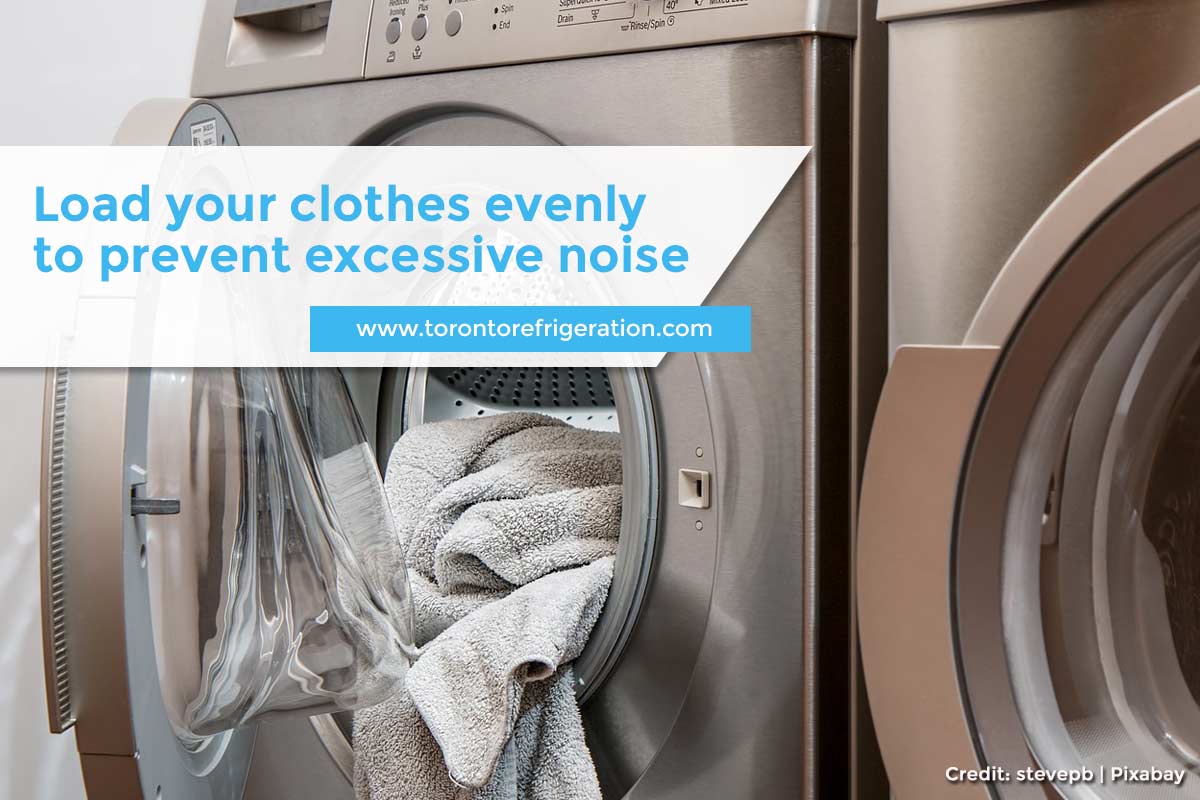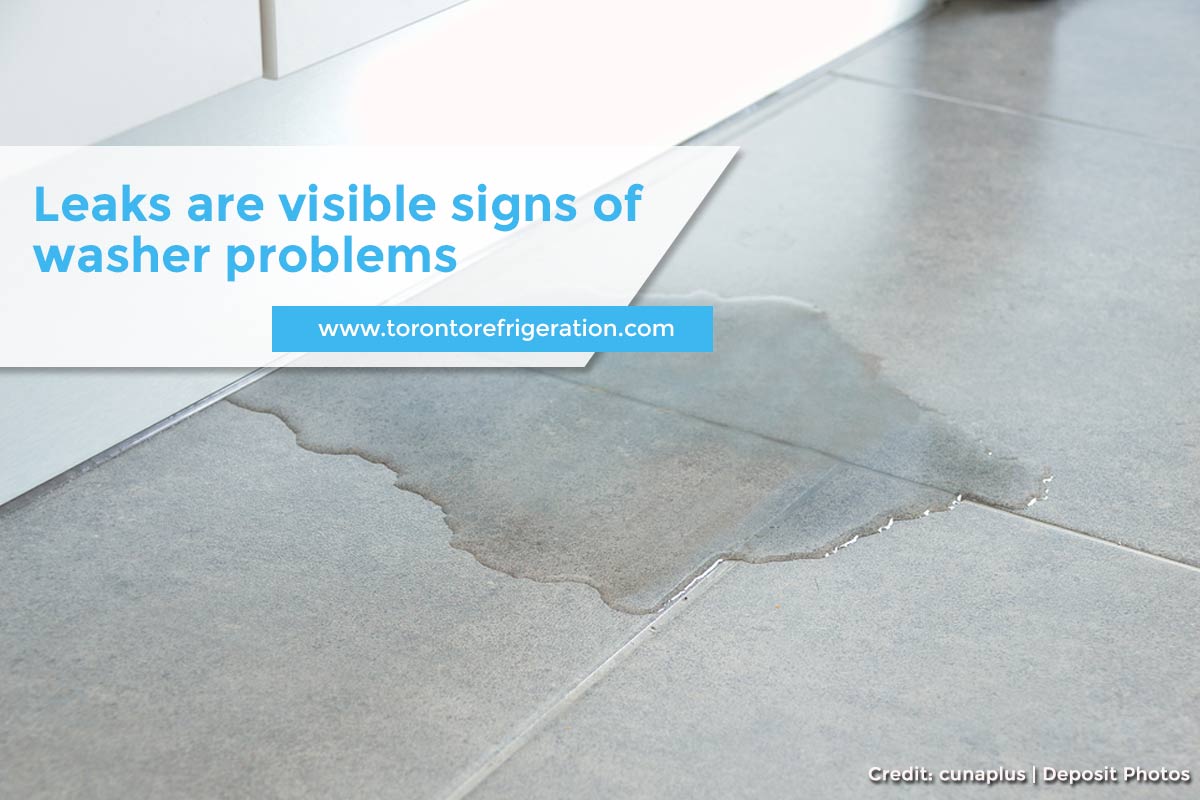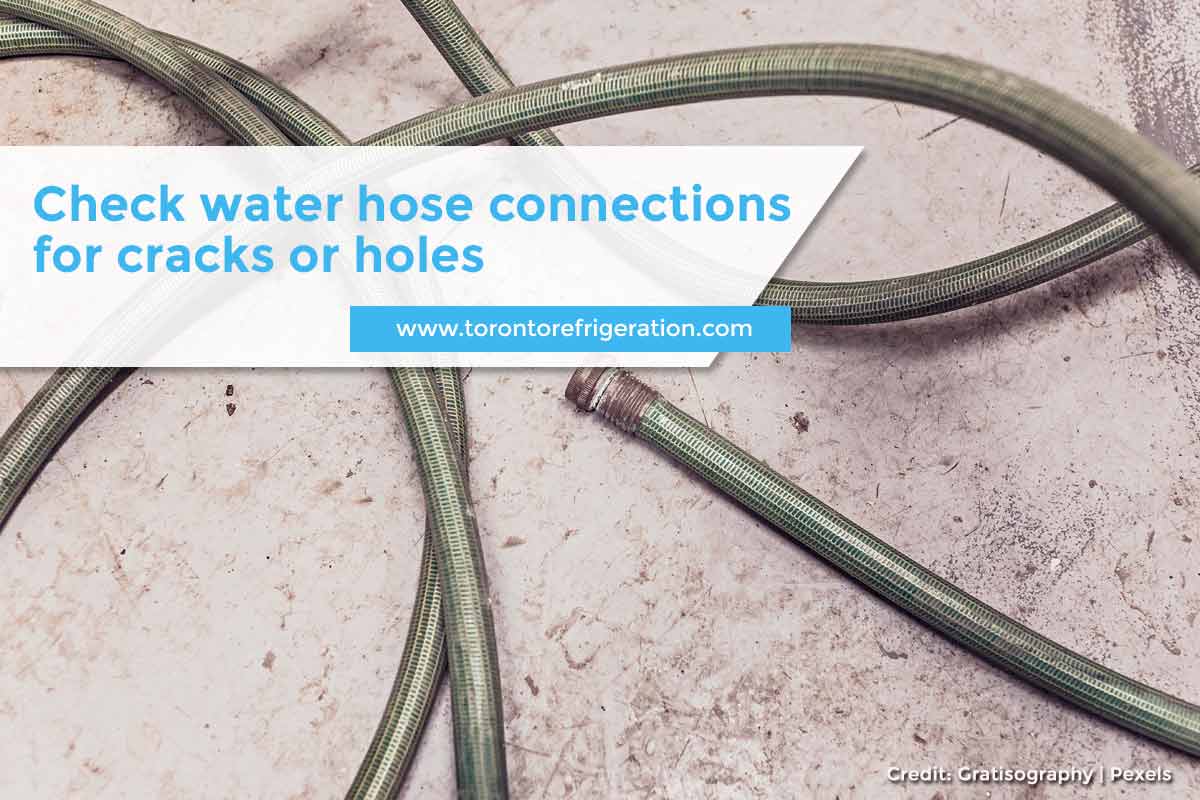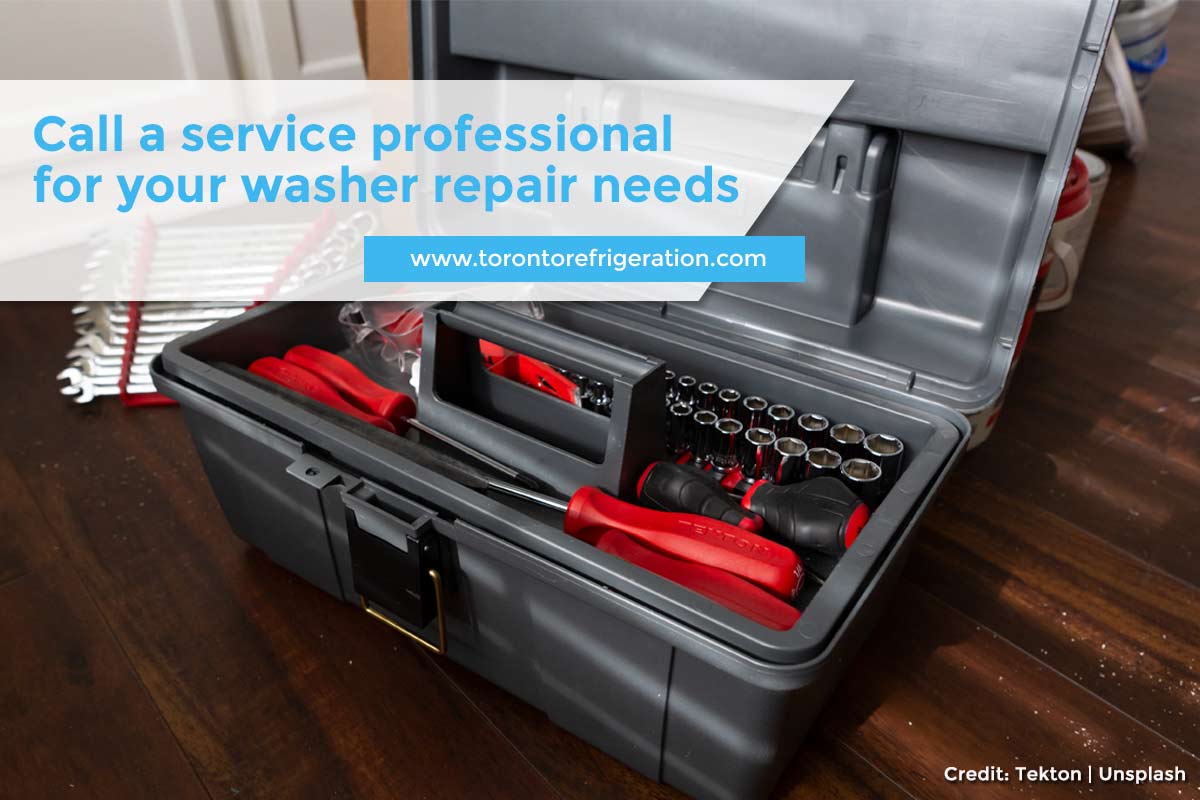Signs Your Washing Machine Needs Repair

A washing machine breaking can be extremely frustrating, especially if there’s a pile of laundry waiting to be washed. An average washing machine is supposed to last about 10 years, but many may agree that it’s not always a smooth ride.
Luckily, not all problems mean that your washer is nearing its end. Many of them only require a quick repair. If you pay close attention, your washing machine will often tell you when it needs fixing. Catching warning signs early is key to avoiding untimely machine failure.
If your washing machine is exhibiting any of these 10 signs, it is probably time to call a technician.
1.Excessive Noise
Washing machines are naturally loud, and most modern washers have done a better job to insulate or buffer them. As a result, if your appliance makes unusual sounds, don’t just shrug it off.
One reason for the noise is probably because your washer is unbalanced. Stop the wash cycle and rearrange your load so that it is evenly distributed, especially if you are using a top-loading washing machine. Another fix is to reposition the appliance so that all its 4 feet are on even ground.
If these fixes prove ineffective, the loud squeaks could indicate that your motor mount or drum is loose. Seek a service technician to have them tightened.
2.Violent Vibrations
Your washing machine should remain in place while operating. However, at times, it can sway side to side as though it is walking because of violent rumbles and vibrations.
There are a few ways to fix this problem. The rumbling can be caused by an imbalance. Many modern washing machines are smart and can automatically make adjustments to reduce the wobble. Still, it is beneficial to check if all its feet are on a level surface so that it won’t dislodge or ruin anything.
If the problem persists, you might need recalibration to prevent potential damage.
3.Leaking
Another visible sign that your washer has a problem is when it is leaking excessively. This is typically caused by overflowing or a loose connection. First, you can try to minimize your load to provide room for turning, spinning, and shaking. Also, check your detergent; some soaps can produce too many suds that cause the drum to overfill and leak.
If the leaking persists, have your hoses or the tub checked and make sure they are tight or have no cracks in them.
4.Poor Draining
If after you finish a cycle and there is still water in the drum, check the pump to see if it is not blocked by any clothing articles. You also have to make sure that your drain hose or filters are not clogged by any foreign objects and lint.
However, if you can’t identify the issue after making preliminary checks, your water pump is likely in need of repair or replacement. Call a professional to handle this so you won’t end up committing more mistakes.
5.Water Does Not Fill the Drum
Not having enough water during a wash cycle is problematic. If the drum doesn’t fill up, it could be caused by various factors. First, check if your faucets are turned on. Also, see if your hose is intact and that there are no cracks or holes. If neither of these is causing the problem, it could be an issue with your water intake valve or filter, which should be looked at by an expert.
6.The Drum Does Not Turn
If your machine refuses to turn or spin, it could be as simple as an issue with overloading. If it’s too heavy, the weight can affect the sensors and turn off the washer. Just reorganize the load and try again.
If overloading is not the reason, it could be a problem with your door latch or interlock. Your machine won’t start if it isn’t safely shut. Other reasons might have something to do with either your drive belt or drains.
7.Problem With the Spin Cycles
At times, age is the reason why the washer does not function as efficiently as it should. As machines get older, their motor also wears and gets weaker. As a result, it may fail to run a proper spin cycle. The best solution would be to purchase a new one. However, if your washer is fairly new but is already encountering problems with spin cycles, it could be down to a malfunctioning component.
If your washing machine won’t advance to the next cycle, it is most likely caused by a faulty timer. The timer is responsible for every step of the process, from washing to spinning. If it breaks, the machine can’t proceed automatically.
Meanwhile, if the washing machine isn’t completing its wash cycle, it could be because of faulty heating or connection. When your machine cannot heat up correctly or senses overheating, it can force the cycle to stop. Drainage issues and leaks can also cause the washing machine to halt mid-cycle.
8.Electrical Issues
Sometimes, the washing machine emits electric shocks. You might feel a little tingle or zap. Either way, it has to be taken seriously. If you have received mild electric shocks from your washer, switch it off and unplug it immediately. This may be because your washing machine wasn’t earthed correctly.
It is best to leave these issues to a professional. Trying to access or rearrange wires by yourself is extremely dangerous. Also, you might just end up causing more damage to your washing machine or the rest of your home.
9.Strange Odour
Dumping a weeks’ worth of spoiled clothes into your washer should not cause the machine to smell — not before, during, or after washing. If you start noticing a foul smell from the machine, you should immediately check it for leaks. Water collecting somewhere can provide the perfect condition for moulds to develop. Be sure to clean them regularly as moulds can cause serious issues if ignored.
If your washing machine gives off a burning smell, it may indicate a potentially dangerous problem. Components, like the drive belt or motor, could be broken or malfunctioning. Immediately shut off the machine and unplug it. Call a professional to assess the problem.
10.No Power
When the problem is that your washing machine is not getting any power at all, you have probably blown a fuse. Luckily, replacing the fuse is cheap and quick.
If the fuse isn’t the problem, there could be an electrical issue elsewhere. Wire connections could be broken. If this is the case, never attempt to fix unless you are qualified.
These are just a few signs of what could go wrong with a washer. Ultimately, it could also boil down to how you use your machine. If you have questions about washers or in need of assistance, don’t hesitate to call in a professional to give you a better idea of how to efficiently use the washing machine.
For your washer repair needs, Toronto Refrigeration is at your service 24/7. Give us a call at (416) 918-2700 or fill out this form to book your repair.




